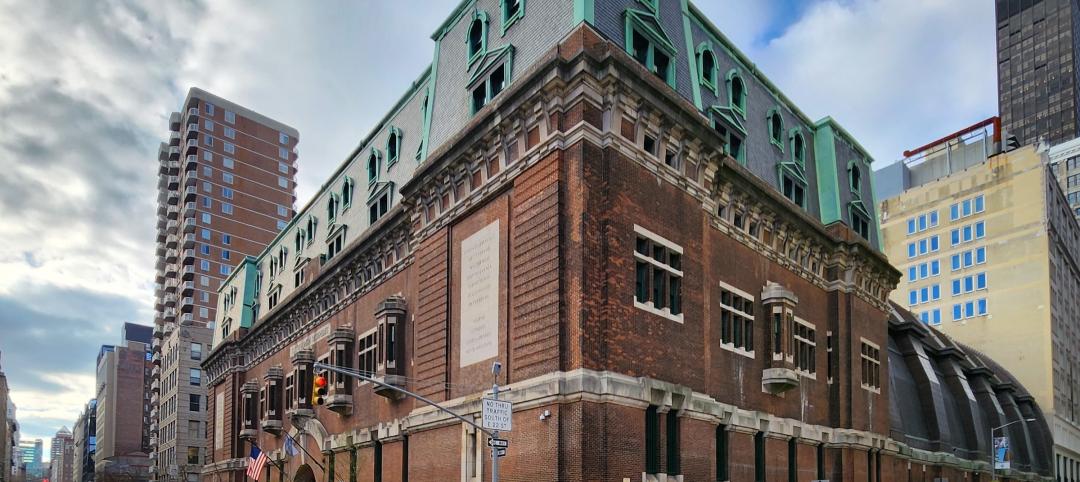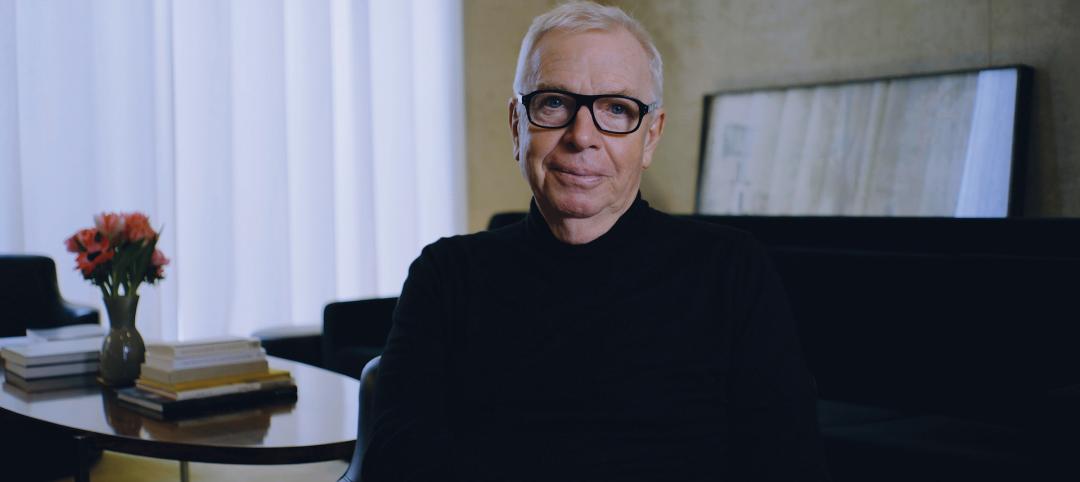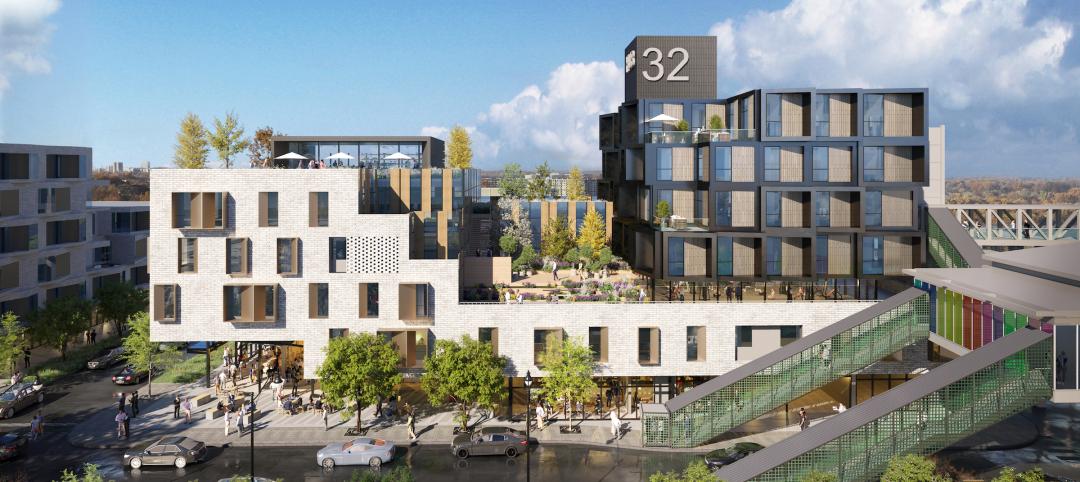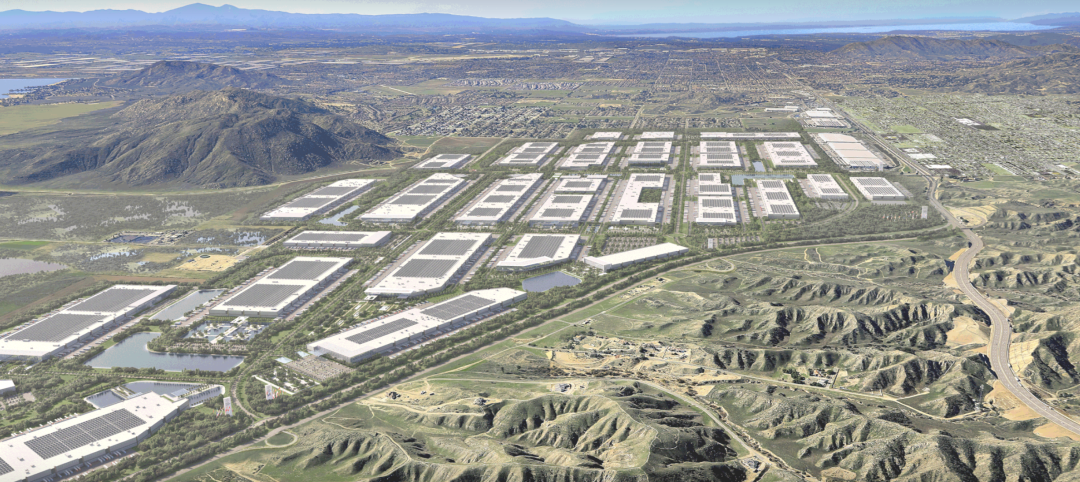The Affordable Housing Design Leadership Institute and Klyde Warren Park have been selected as the 2018 recipients of the Collaborative Achievement Award, which recognizes and encourages distinguished achievements of allied professionals, clients, organizations, architect teams, knowledge communities, and others who have had a beneficial influence on or advanced the architectural profession. The recipients will be honored at the AIA Conference on Architecture 2018 in New York City.
Affordable Housing Design Leadership Institute funded by Enterprise Community Partners
 Photo: Michael Walmsley
Photo: Michael Walmsley
For nearly a decade, the Affordable Housing Design Leadership Institute (AHDLI) funded by Enterprise Community Partners, has been a quiet but powerful force shaping social impact design. Modeled on the Mayors’ Institute on City Design, it assembles development and design leaders to focus on the ways in which architecture can produce more livable and sustainable housing for low- and middle-income people across the United States. During its short life, the institute has had a profound effect on the affordable housing ecosystem and has cultivated partnerships with more than 70 nonprofit and community groups in several communities.
Whether it’s improving four-unit historic buildings that serve a primarily refugee neighborhood in Buffalo, New York, or single-family homes for 300 Native American families in Arizona, the AHDLI process begins with a two-and-a-half-day charrette bolstered by a rigorous design curriculum. In that short time, the institute can radically alter the trajectory of development projects while equipping a new class of leaders with the tools to champion design excellence. Surveys have shown that as a result of AHDLI participation the vast majority of participants work more effectively with designers, address design much earlier in the development process, and ask more of their architect.
AHDLI, founded by Katie Swenson, Lawrence Scarpa and Maurice Cox, is the embodiment of what can happen when architects are fully engaged with leaders from outside the profession. Participants often become instant advocates, and the resulting innovative collaborations directly benefit people and communities in need.
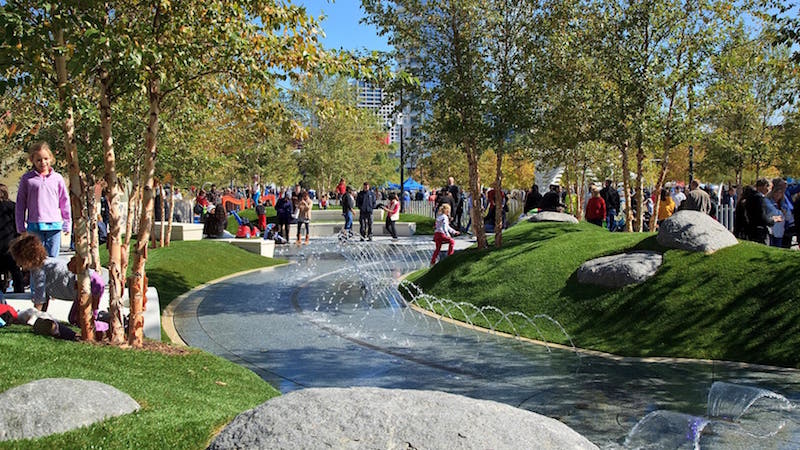 Photo: Dillon Diers Photography.
Photo: Dillon Diers Photography.
Klyde Warren Park healed a rift in Dallas where a freeway once divided two vital sections of the city, overcoming an obstacle that many residents feared was permanent. The park, completed in 2012, required significant funding and buy-in from the public and private sectors, but the efforts resulted in 5 acres of activated, world-class green space that has redefined the city and its self-image.
Designed by The Office of James Burnett, Klyde Warren Park is perched above Spur 366 and caps what was once a high-speed concrete canyon. A feat of engineering, the park’s deck was constructed with more than 300 concrete beams and slabs, a combination that creates trenches that play the role of planting boxes for 37 native plant species and more than 300 trees. LEED Gold–certified, the park relies on a number of practical sustainable strategies resulting in a 40 percent reduction in potable water use. Its trees intercept nearly 25,000 gallons of stormwater runoff and sequester approximately 18,500 pounds of carbon dioxide annually.
Recent studies have shown that the urban oasis has improved the quality of life for more than 90 percent of Dallasites, and has generated more than $1 billion in new development within a quarter-mile radius since the project was announced in 2009. Further bolstering the city’s Arts District, the park abuts the Renzo Piano–designed Nasher Sculpture Center and the Dallas Museum of Art. The entire district saw its economic impact triple, due in large part to a significant increase in street activity since Klyde Warren Park’s completion.
The $97 million project was funded through a combination of city bond, state highway, and federal stimulus funds as well as $55 million in private donations. The project is now managed by the Woodall Rodgers Park Foundation, a nonprofit organization that helped secure early funding for feasibility studies and maintained its momentum during the depths of the Great Recession.
The jury for the 2018 Collaborative Achievement Award includes: Rik Master, FAIA (Chair), USG Corporation; Patrick Burke, FAIA, Columbia University; Lindsey Graff, Assoc. AIA, Ayers Saint Gross Architects; Libby Haslam, AIA, GSBS Architects; and R. Steven Lewis, FAIA, TRC Energy Services.
Related Stories
Building Team | Mar 8, 2023
Call for Speakers: BD+C’s 2023 Women in Residential + Commercial Construction Conference
The 2023 Women in Residential + Commercial Construction conference event will take place October 25-27 in Nashville, Tenn., and will bring together more than 300 women leaders from all facets of the $1.4 trillion U.S. residential and commercial constructing sector.
Reconstruction & Renovation | Mar 8, 2023
Hoffmann Architects + Engineers receives Lucy G. Moses Preservation Award from New York Landmarks Conservancy
Hoffmann Architects + Engineers, a design firm specializing in the rehabilitation of building exteriors, announces that the historic facade rehabilitation and window replacement at the 69th Regiment Armory has been selected for the Lucy G. Moses Preservation Award, the New York Landmarks Conservancy’s prestigious recognition for outstanding preservation efforts.
Architects | Mar 7, 2023
David Chipperfield named 2023 Pritzker Architecture Prize laureate
Widely regarded as architecture's highest honor, the 2023 Pritzker Architecture Prize has been awarded to UK-based architect David Chipperfield. In honoring Chipperfield with the award, the Pritzker Prize jury cited the architect's "commitment to an architecture of understated but transformative civic presence and the definition—even through private commissions—of the public realm."
Multifamily Housing | Mar 7, 2023
Multifamily housing development in Chicago takes design inspiration from patchwork and quilting
HUB 32, a 65-unit multifamily housing development, will provide affordable housing and community amenities in Chicago’s Garfield Park neighborhood. Brooks + Scarpa’s recently unveiled design takes inspiration from the American tradition of patchwork and quilting.
Industrial Facilities | Mar 6, 2023
The largest planned logistics and business park in North America gets under way in Southern California
The $25 billion World Logistics Center will boost the supply chain capabilities of Southern California and will serve as a distribution center for destinations across the continent.
Healthcare Facilities | Mar 6, 2023
NBBJ kicks off new design podcast with discussion on behavioral health facilities
During the second week of November, the architecture firm NBBJ launched a podcast series called Uplift, that focuses on the transformative power of design. Its first 30-minute episode homed in on designing for behavioral healthcare facilities, a hot topic given the increasing number of new construction and renovation projects in this subsector.
K-12 Schools | Mar 6, 2023
Benefitting kids through human-centric high school design
Ingrid Krueger, AIA, LEED AP, shares why empathetic, well-designed spaces are critical in high schools.
Adaptive Reuse | Mar 5, 2023
Pittsburgh offers funds for office-to-residential conversions
The City of Pittsburgh’s redevelopment agency is accepting applications for funding from developers on projects to convert office buildings into affordable housing. The city’s goals are to improve downtown vitality, make better use of underutilized and vacant commercial office space, and alleviate a housing shortage.
Student Housing | Mar 5, 2023
Calif. governor Gavin Newsom seeks to reform environmental law used to block student housing
California Gov. Gavin Newsom wants to reform a landmark state environmental law that he says was weaponized by wealthy homeowners to block badly needed housing for students at the University of California, Berkeley.
Green Renovation | Mar 5, 2023
Dept. of Energy offers $22 million for energy efficiency and building electrification upgrades
The Buildings Upgrade Prize (Buildings UP) sponsored by the U.S. Department of Energy is offering more than $22 million in cash prizes and technical assistance to teams across America. Prize recipients will be selected based on their ideas to accelerate widespread, equitable energy efficiency and building electrification upgrades.



